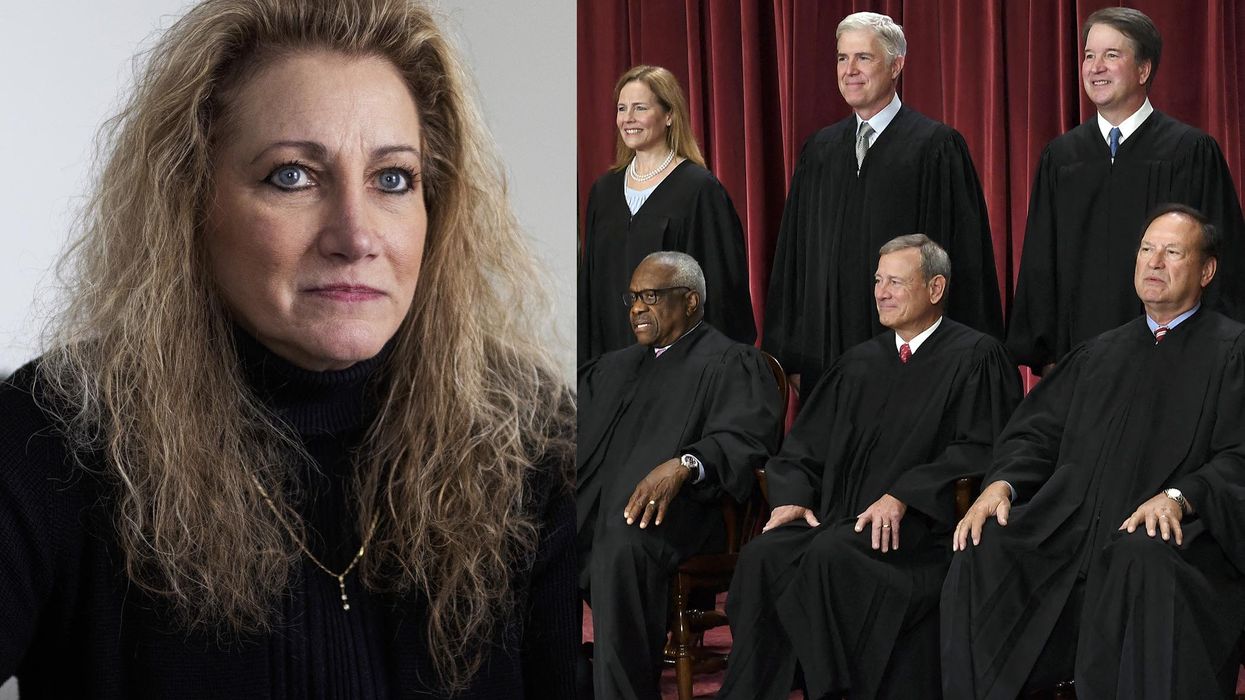
Photo (left): Maddie McGarvey/For The Washington Post via Getty Images; Photo (right): OLIVIER DOULIERY/AFP via Getty Images

The court rules that minorities and nonminorities have to meet the same standards.
Marlean Ames says that her employer discriminated against her because she is a straight woman, and she took her case all the way to the U.S. Supreme Court.
On Thursday, the court's unanimous ruling found that a lower court's standard against the possibility of "reverse discrimination" was wrong. Ames can now argue her case with the new standard of discrimination at the lower court.
'Congress left no room for courts to impose special requirements on majority-group plaintiffs alone.'
Ames filed a lawsuit accusing her employer, Department of Youth Services of Ohio, when a gay supervisor passed her over for a promotion and gave the job to a gay woman instead. She also claimed to have been demoted with a pay cut in favor of a gay man. She had worked for the department for over 20 years.
The Supreme Court ruling invalidates a standard set by the Sixth Circuit Court of Appeals that nonminorities must provide more evidence of discrimination than a member of a minority group.
"Congress left no room for courts to impose special requirements on majority-group plaintiffs alone," Justice Ketanji Brown Jackson wrote in the majority ruling. "The standard for proving disparate treatment under Title VII does not vary based on whether or not the plaintiff is a member of a majority group.”
America First Legal praised the ruling as a victory for true equality before the law.
“Nothing in Title VII’s text supported the discriminatory ‘background circumstances’ requirement. It was a judicial fabrication, completely untethered to any statutory language,” said AFL senior counsel Nick Barry.
RELATED: President Trump triggers liberal meltdown by rolling back Obama-era LGBT protection

“The Supreme Court’s unanimous decision correcting this, along with Justice Thomas’ concurrence questioning 'atextual legal rules and frameworks,' should serve as a clear call for conservative litigators to continue to press for the rule of law," he added. "As we often say at America First Legal: read the statute.”
"We are overjoyed that the court saw the case our way," said Ames' attorney Edward Gilbert.
A spokesperson for the Ohio Attorney General’s Office said it will continue to fight in court that the department did not discriminate against Ames.
Editor's note: The headline of this article has been edited after publication for clarity.
Like Blaze News? Bypass the censors, sign up for our newsletters, and get stories like this direct to your inbox. Sign up here!